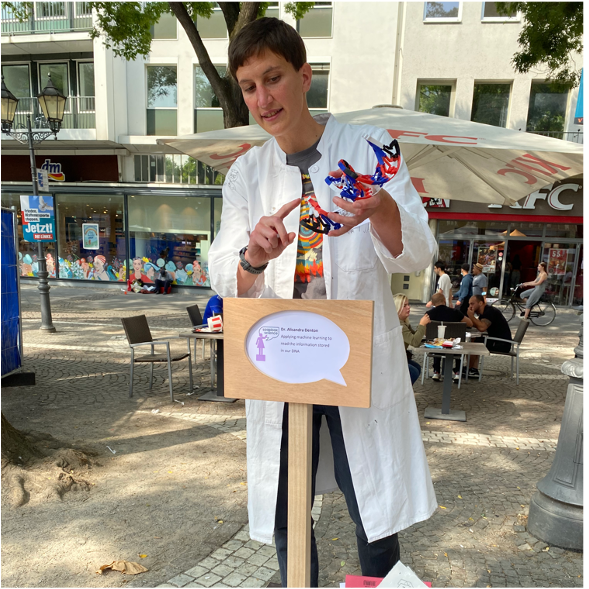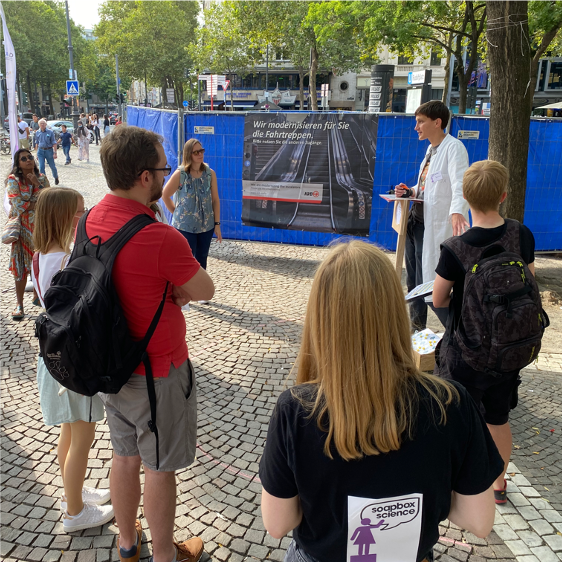Wissenschaftlerinnen erklären ihre Forschung der Öffentlichkeit
Das internationale Soapbox Science Event feiert in diesem Jahr sein 10-jähriges Jubiläum und findet mit 45 Events in 15 Ländern statt. Ziel ist es, die Wissenschaft zu den Menschen zu bringen und Geschlechterstereotypen in wissenschaftlichen Berufen zu hinterfragen. In Köln fand die Veranstaltung auf dem Rudolfplatz im Zentrum der Stadt statt. Viele Menschen waren an einem sonnigen Tag in die Stadt gekommen und stoppten teilweise eher zufällig, um die kurzen Beiträge zu hören. Viele Fragen und Gespräche entwickelten sich nach den Präsentationen und sowohl Besucher als auch die Wissenschaftlerinnen verließen die Veranstaltung mit vielen neuen Erkenntnissen.
Alisandra Denton vom Institut für Biochemie der Pflanzen (HHU) nahm an dem Event teil mit dem Vortrag “Applying machine learning to read the information stored in our DNA”. Priyamedha Sengupta vom Institut für Pflanzenwissenschaften (Universität zu Köln) informierte die Zuhörer über “Frontline worker: How microbes protect plants”. Adélaïde Raguin vom Institut für Quantitative und Theoretische Biologie (HHU) konnte leider nicht nach Köln kommen und beantwortete per Video die Frage “How to move inside a cell?”. Video ansehen
Alisandra Denton, Adélaïde Raguin and Priyamedha Sengupta haben ein gemeinsames Statement formuliert, in dem sie ihre Motivation beschreiben, an dem Soapbox Science Event teilzunehmen:
"Increasing the visibility of women in science plays a critical role in changing stereotypes and thereby lived experiences for women in STEM.
First, visibility is important so that women in STEM can be role-models and help inspire the next generation to pursue a scientific career. We hope that increased current visibility helps great female scientists throughout history receive their earned recognition, as for instance, the school curriculum we grew up with did not devote much or any time to great female scientists.
Second, visibility is important to help normalize the presence of women in science, particularly in the higher ranks of the scientific professional ladder where women are consistently underrepresented. There is an all-to-common subconscious—and unfortunately also sometimes conscious—assumption that women don't belong or aren't qualified for high profile scientific positions. While in reality, this often reflects practical choices, such as those made by many women who leave science for less time-intensive or more stable jobs in order to care for their families. Moreover, such a "women don't belong" belief works as a self fulfilling prophecy, as women who feel alienated, or like they will not have a fair chance to succeed in a STEM field, will very reasonably take their talents elsewhere.
Overall, we hope increased visibility helps push back against harmful stereotypes, both by piquing the interest of talented young women and encouraging them to enter STEM fields, and to help create a welcoming and gender diverse environment where women can thrive throughout their careers."


